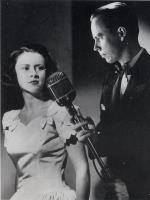Look for an exciting new auction in a few days of items from the collection of Patrick Page. Signed documents, rare photos, and wonderful odd papers from around the world..
http://us10.campaign-archive1.com/?u=dfb38d568f2598253ad85fba7&id=ef51144481&e=94fcd326fc
Final Page turns as Pat Page – the ‘magician’s magician’ – completes his last trick..
HE WAS the magician’s magician. The man conjurors consulted for confidential advice on developing tricks, and his work still influences the profession today.
• Dundee-born Pat Page was regarded as the ‘magician’s magician’.
Yet if you were to mention the name of Scots-born Pat Page outside the secret world of illusionists, few would recognise it.
However, yesterday some of the biggest names in the industry paid tribute to the magician following his death at the age of 81.
Television magician Derren Brown described Mr Page as “a genius of our craft” and said he was “devastated” by the news of his death, while others said Mr Page’s passing had “left a void in magic, that will be impossible to fill”.
Born and brought up in Dundee, Mr Page was among the first wave of British post-war magicians who invented and wrote down many of the tricks still used to this day.
His first publication, The Big Book of Magic, is considered a Bible among magicians, while he was said to be the master of the “Topit”, a unique vanishing trick he devised that gained the admiration of his peers.
Mr Page avoided a high profile in public yet his abilities meant he was constantly sought out by his peers.
He worked with Paul Daniels in the 1970s and was a consultant on the James Bond movie Casino Royale, in which playing cards were prominent.
Derren Brown, with whom Mr Page had worked as an adviser, said: “Magicians worth their salt will know that Patrick was a genius of our craft, and a famously generous man.
"I knew him a little from his consultancy work on some of my projects – he was a brilliantly rude, sharp-witted, sensationally likeable Scot, better at magic and more knowledgeable than any of us. It is an honour to have known him.”
Mr Page’s abilities as a performer and adviser were combined finally with the 2007 film Magicians, starring comedians David Mitchell and Robert Webb, working in front and behind the camera.
However, during his long career Mr Page was sustained through working the club circuit and publishing numerous books, recorded instructional tapes and DVDs for beginner magicians.
He continued to work right up until his death at the end of last week.
Jack Delvin, president of the Magic Circle and a long-time friend, said that though he was not well-known to the public, his absence would be felt by them.
“He really was the magician’s magician,” he said. “In the world of magic he was a legendary character: he helped magicians to become famous with his inventions, new tricks, teachings and original way of presenting effects. He was generous with his time when it came to teaching magic tricks.”
The youngest of six siblings to Patrick and Jane Page, he married his wife Margaret at 22 years of age before moving to London to work in Davenport’s Magic Store during the early 1960s, where he stayed for 15 years, becoming manager.
Betty Davenport, whose family established the store in 1898, said: “His passing is incredibly sad for us. He was a brilliant magician, capable of demonstrating every trick in our shop. We loved having him work here.”
Top magician Nick Lewin recalled being amazed by the Scot on his visits to the store: “For a youthful magician there weren’t many places where you could spend an uninterrupted hour with a master magician like Pat.
"You knew that at some point during your visit you were going to be fooled by the big ashtray in which he was stubbing out his cigarettes. Patrick was the king of misdirection and could palm a selected card out of the deck and leave it under that ashtray.
"It doesn’t sound much; a chosen card arrives under an ashtray? Maybe when the card arrived there for the first time it wasn’t too amazing. However by the time Pat had fooled you for the tenth time with the same trick it became pretty darn amazing.”
http://www.scotsman.com/news/final-page-turns-as-pat-page-the-magician-s-magician-completes-his-last-trick-1-790881
 By Frank Moraes for Frankly Curious
By Frank Moraes for Frankly Curious